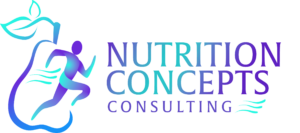A plant-based diet focuses primarily on foods derived from plants. This includes not only fruits and vegetables, but also nuts, seeds, oils, whole grains, legumes, and beans. While plant-based diets can vary widely in their composition, they generally emphasize whole, minimally processed foods. Here are the key aspects of a plant-based diet:
Types of Plant-Based Diets
- Vegan: Excludes all animal products, including meat, dairy, eggs, and often honey.
- Vegetarian: Excludes meat but may include dairy products and eggs.
- Pescatarian: Excludes meat but includes fish and seafood.
- Flexitarian: Primarily plant-based but occasionally includes meat and animal products.
Benefits
- Health Benefits:
- Lower Risk of Chronic Diseases: Reduced risk of heart disease, hypertension, type 2 diabetes, and certain cancers.
- Weight Management: Plant-based diets are often lower in calories and high in fiber, promoting satiety and healthy weight.
- Digestive Health: High in fiber, which supports digestive health and regular bowel movements.
- Nutrient Density:
- Rich in Vitamins and Minerals: High in essential nutrients such as vitamins A, C, and E, potassium, magnesium, and folate.
- Antioxidants and Phytochemicals: Abundant in compounds that protect against cellular damage and inflammation.
- Environmental Benefits:
- Reduced Carbon Footprint: Lower greenhouse gas emissions compared to diets high in animal products.
- Conservation of Resources: Requires less land, water, and energy to produce plant foods.
Key Nutrients to Focus On
- Protein:
- Sources: Beans, lentils, chickpeas, tofu, tempeh, edamame, quinoa, nuts, and seeds.
- Combining different plant proteins throughout the day ensures a complete amino acid profile.
- Iron:
- Sources: Legumes, lentils, tofu, spinach, quinoa, fortified cereals.
- Enhance absorption by consuming vitamin C-rich foods (like citrus fruits, bell peppers) with iron-rich foods.
- Calcium:
- Sources: Fortified plant milks (almond, soy, oat), tofu, leafy greens (kale, bok choy), almonds, sesame seeds.
- Ensure adequate intake to support bone health.
- Vitamin B12:
- Sources: Fortified foods (plant milks, nutritional yeast, cereals) or supplements, as B12 is primarily found in animal products.
- Essential for nerve function and red blood cell production.
- Omega-3 Fatty Acids:
- Sources: Flaxseeds, chia seeds, hemp seeds, walnuts, algae-based supplements.
- Important for heart and brain health.
- Vitamin D:
- Sources: Fortified plant milks, mushrooms exposed to sunlight, supplements.
- Supports bone health and immune function.
Tips for a Balanced Plant-Based Diet
- Variety: Include a wide range of foods to ensure all nutrient needs are met.
- Whole Foods: Focus on whole grains, legumes, vegetables, fruits, nuts, and seeds.
- Minimize Processed Foods: Limit intake of highly processed plant-based products, which can be high in added sugars, fats, and sodium.
- Meal Planning: Plan meals and snacks to ensure a balanced intake of nutrients.
- Hydration: Drink plenty of water and include hydrating foods like fruits and vegetables.
- Cooking Methods: Use healthy cooking methods like steaming, grilling, and baking instead of frying.
Transitioning to a Plant-Based Diet
- Start Gradually: Begin by incorporating more plant-based meals into your diet and reducing animal products over time.
- Experiment: Try new recipes and plant-based alternatives to find what you enjoy.
- Educate Yourself: Learn about plant-based nutrition to ensure a balanced diet.
- Seek Support: Join plant-based communities or consult with a dietitian for guidance.
A plant-based diet can provide numerous health benefits and contribute to environmental sustainability. With careful planning, it is possible to meet all your nutritional needs and enjoy a diverse and satisfying diet.
